<< Previous | Displaying results 301-325 of 6769 for "" | Next >>
Born to Catholic parents, Wladyslaw attended schools in Warsaw and earned a degree in survey engineering in Moscow in 1914. After fighting in World War I, he commanded a horse artillery division in Warsaw, worked for Poland's Military Geographic Institute, and taught topography courses. He started a family in 1925, and after he retired from the army in 1929 he founded a surveying company. 1933-39: When war with Germany became imminent in the summer of 1939, Wladyslaw volunteered to fight but was rejected…
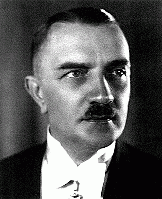
Gertruda was one of five children born to a poor family in the rural community of Zegrowek in western Poland. The Nowaks lived near Gertruda's grandparents. Like their parents, Sylwester and Joanna Nowak, the Nowak children were baptized in the Roman Catholic faith. 1933-39: As a young girl, Gertruda helped with chores around the house, and after school she looked after her younger brothers and sisters. She was 9 years old when the Germans invaded Poland on September 1, 1939. Nazi troops reached Zegrowek…
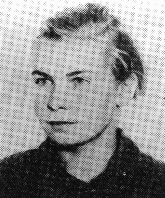
Michal was one of two children born to Catholic parents living in Siedlce, a large town some 65 miles east of Warsaw. Michal's father was an intelligence officer in the Polish army. Because his duty station frequently changed, the family lived in several towns along the Polish-Soviet border. As a child, Michal enjoyed photography and was active in the boy scouts. 1933-39: Michal's family was living in Wilejka, a town near Vilna, when the Germans attacked Poland on September 1, 1939. The Soviet army…
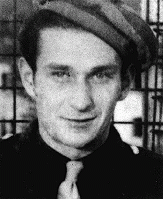
Pawel was the oldest of four children born to Roman Catholic parents in Poland's capital of Warsaw. Pawel's father had worked for the Polish merchant marine before starting his own textile business in 1930. The family moved to a comfortable apartment near the Royal Castle and the Vistula River. Pawel excelled in sports, including basketball and tennis. His favorite sport was rowing. 1933-39: In May 1939 Pawel became an army reserve officer and went to training camp near Augustow. On the morning of…
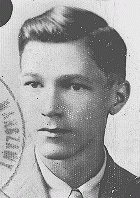
Henny's parents met in Germany soon after her father emigrated from the Russian Empire. Henny was the first of the Jewish couple's three children. The family lived in Frankfurt am Main, an important center of commerce, banking, industry and the arts. 1933-39: After the Nazis came to power, they began to persecute Jews, Roma (Gypsies), men accused of homosexuality, people with disabilities, and political opponents. In 1938, as one way of identifying Jews, a Nazi ordinance decreed that "Sara" was to be…
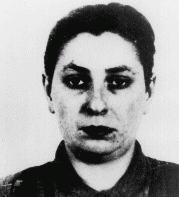
Although Julian's Polish Catholic parents had immigrated to the United States before World War I, his mother had returned to Poland and Julian was born in a village not far from the large town of Tarnow in southern Poland. Julian was raised in Skrzynka by his mother on her four-acre farm while his father remained in the United States. 1933-39: At 16 Julian left home and worked as a dishwasher in an elegant Jewish club in downtown Tarnow. When the Germans invaded in September 1939, he returned to his…
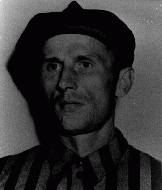
Hanandel was raised with his three brothers and sisters in the town of Kozlow, where his family sold grain and livestock. The family was religious, and they observed the Sabbath and all Jewish holidays and dietary laws. When Hanandel was 5, he began studying Hebrew, the Bible, prayers, and Jewish history. 1933-39: At age 14 Hanandel was apprenticed to his uncle in Sosnowiec as a tinsmith. He worked for his uncle during the day and attended trade school at night. When he graduated from trade school he…
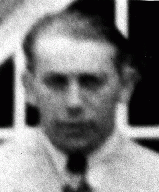
Bernhard, who was from a religious Jewish family in the Polish town of Oswiecim, emigrated as a young man to Frankfurt, Germany. There he married Bertha Oppenheimer from the nearby town of Reichenbach. They settled in Reichenbach where they were one of 13 Jewish families. Bernhard worked as a shoemaker, and the couple raised three children. 1933-39: In a corner of his living room, Bernhard ran a small shop specializing in orthopedic shoes. Antisemitism was growing in Germany, but the townspeople of…
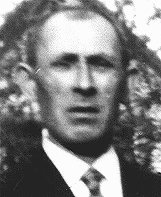
Johannes was born to Christian parents and had three brothers and three sisters. His father sold coal for heating systems. By 1933, Johannes was also a coal distributor. Like many other Dutch citizens, Johannes did not approve of Hitler's policies. He especially objected to Hitler's persecution of Jews and Jehovah's Witnesses. 1933-39: Hitler's coming to power in Germany was a threat to all of them. In 1936, Johannes became a Jehovah's Witness. His mother was also a Witness and, by 1938, one brother and…
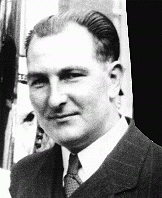
Johann was born to Catholic parents in the part of Austria known as Carinthia, where he was raised on the family farm. Johann enjoyed acting and belonged to a theater group in nearby Sankt Martin, which also happened to have a Jehovah's Witness congregation. He became a Jehovah's Witness during the late 1920s, actively preaching in the district around Sankt Martin. 1933-39: Johann continued to do missionary work for the Jehovah's Witnesses even after this was banned by the Austrian government in 1936. The…
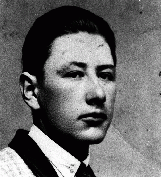
Walther was born in the state of Thuringia in east central Germany. Though his parents were Lutheran, Walther became a Jehovah's Witness in 1923. After becoming a master baker and confectioner in 1924, Walther worked in various coffeehouses in Plauen, Magdeburg and Duesseldorf. In 1928 he graduated from a professional school. He married and had two sons. 1933-39: In 1933 Walther became a pastry-making manager at the Cafe Weitz on Duesseldorf's Koenigsallee. The Gestapo arrested him at the cafe in 1937…
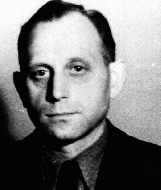
Sabina grew up in a Jewish family in Piotrkow Trybunalski, a small industrial city southeast of Warsaw. Her family lived in a non-Jewish neighborhood. Her father was a businessman and her mother was a teacher. Both Yiddish and Polish were spoken in their home. In 1929 Sabina began public school, and later went on to study at a Jewish secondary school. 1933-39: On September 1, 1939, Germany invaded Poland. Four days later, German troops streamed into Sabina's city. After one month of occupation, her father…
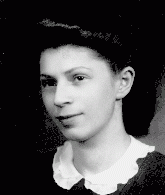
Gitla was the second-youngest of four girls born to observant Jewish parents. They made their home in Sandomierz, a predominantly Catholic town on the Vistula River. Her father owned a small bookstore across from the town hall, selling school texts and novels. Gitla attended public school before enrolling in a Catholic girls' high school. In the winter, Gitla enjoyed skating on the Vistula. 1933-39: In 1937 Gitla moved to Katowice, a large town on the Polish-German border. There, she enrolled in a…
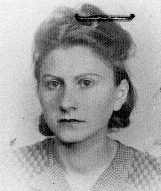
The younger of two girls, Lore was born to Jewish parents in a village close to the Belgian border. The Heumanns lived above their general store. Across the street lived Lore's grandfather, who kept horses and cows in his large barn. When Lore was a year old, her family moved to the city of Lippstadt. The Lippe River flowed beyond the large garden in back of their house. 1933-39: When Lore was 6, her family moved to the nearby city of Bielefeld, where she entered public school. A year later, she and her…
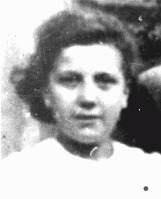
Shulamit, known as Musia, was the youngest of two daughters born to a Jewish family in the town of Horochow, 50 miles northeast of Lvov. Her father was a philosophy professor who taught at the university in Lvov, and both of her parents were civic leaders in Horochow. Shulamit began her education with private tutors at the age of 4. 1933-39: In September 1939 Germany invaded Poland, and three weeks later the Soviet Union occupied eastern Poland, where Shulamit's town was located. Hordes of refugees…
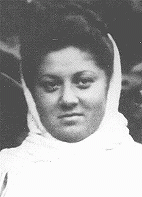
Channa and her husband and five children lived 35 miles east of Warsaw in the small predominantly Jewish town of Kaluszyn. Channa's husband, Jankel, was employed as a clerk in the town hall. After Channa's children reached school age, she helped her mother run a newspaper kiosk in town. 1933-39: Germany has invaded Poland, and Channa's hopes that Kaluszyn wouldn't be in the line of fire have been shattered. First, a German plane flew over their town and dropped a bomb on people waiting in line outside a…
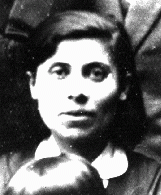
Marcus, known to his family as Moniek, was one of three children born to a Jewish family in the Polish town of Ulanow. His father worked as a tailor. Ulanow's Jewish community had many of its own organizations and maintained a large library. From the age of 3, Moniek attended a religious school. He started public school when he was 7. 1933-39: In 1935 Moniek's father left for America to find a job so that his family could later join him. He sent money to them while they waited for their emigration papers.…
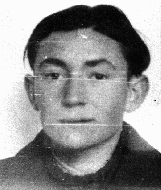
Vladan was the oldest of five children born to well-to-do Serbian Orthodox parents in the village of Gnjilane in the Serbian part of Yugoslavia. Vladan went to Montpelier, France, where he earned a law degree from the university. When Vladan returned to Yugoslavia, he worked as an attorney in Belgrade. He married and had one daughter. 1933-39: Vladan's wife died in 1933, and his 4-year-old daughter went to live with her maternal great-aunt. Meanwhile, Vladan had expanded his law practice and was…
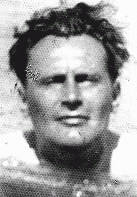
Lonia had three sisters and one brother. Her parents owned a cotton factory in the town of Wegrow. The Goldmans were a religious family, strictly observing the Sabbath, the Jewish holidays and the dietary laws. 1933-39: After studying all day at public school, Lonia attended a religious school for girls called Beis Yakov where she studied Hebrew, the Bible and Jewish history. Later, when she was in high school, a private tutor came to the house to teach her Hebrew. Lonia's favorite hobby was knitting.…
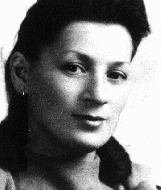
Lisa was born to a Jewish family in the small city of Ostrog in southeastern Poland. Her parents operated a grocery out of their residence; the front half of the house was a store and the rear half was their home. Ostrog was an important center of Jewish religious learning in Poland, and by 1933 Jews made up almost two-thirds of the city's total population. 1933-39: Lisa's family was religious and they regularly attended services. Lisa studied at a Polish school until the Soviets arrived in September…
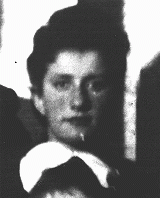
Erzsebeth was raised in Budapest, where her Polish-born Jewish parents had lived since before World War I. Her father, a brush salesman, fought for the Austro-Hungarian forces in that war. The Buchsbaums' apartment was in the same building as a movie house. There was a small alcove in the apartment, and Erzsebeth's brother, Herman, made a hole in the wall so that they could watch the films. 1933-39: Every summer Erzsebeth, Herman, and their mother took a special trip to Stebnik, Poland, to visit Grandma.…
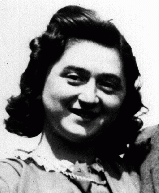
Chaja was the eldest of four children born to a middle-class Jewish family in the northeastern Polish town of Iwie. Her father earned his living as a blacksmith. Chaja first went to a private Jewish school that taught both religious and secular subjects; in the fourth grade she transferred to a public school, and also attended Hebrew school in the afternoon. 1933-39: Chaja belonged to one of the Zionist youth organizations in Iwie. They heard lectures, often on Palestine [Yishuv], and had many sporting…
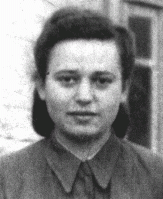
Henryk was raised in a religious Jewish family. His father was a cantor, and his parents placed an emphasis on education. In 1916 the Lubelskis moved to Rawicz, a town in German-occupied Poland. Henryk was first in his class in secondary school, where he also excelled in wrestling and soccer. After graduating, Henryk became an apprentice in a business. 1933-39: In 1935 Henryk's father secured a good position in the city of Katowice. There, Henryk worked in the sausage business. Since Katowice was close to…
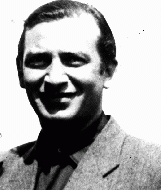
Gerda was born to a Jewish middle-class family in Bielsko, Poland, a town noted for its textile industry. She began her education in Polish public school, but later entered a Catholic girls school. A rabbi was permitted to come into the school and instruct the Jewish students in religious studies. 1933-39: On Friday, September 1, 1939, German fighter planes appeared overhead, causing many people to flee the city. Gerda's family remained and lived through the intense shelling that followed on Sunday…
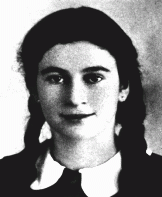
Selma was the youngest of the Wijnberg's four children, and the only daughter. When she was 7, her family left Groningen to start a business in the town of Zwolle [in the Netherlands]. There her parents ran a small hotel popular with Jewish businessmen traveling in the area. Every Friday there was a cattle market, and many of the cattle dealers came to the Wijnberg's hotel for coffee and business. 1933-39: At home Selma and her family were observant of Jewish tradition because her mother was religious.…
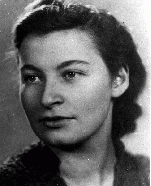
We would like to thank Crown Family Philanthropies, Abe and Ida Cooper Foundation, the Claims Conference, EVZ, and BMF for supporting the ongoing work to create content and resources for the Holocaust Encyclopedia. View the list of donor acknowledgement.